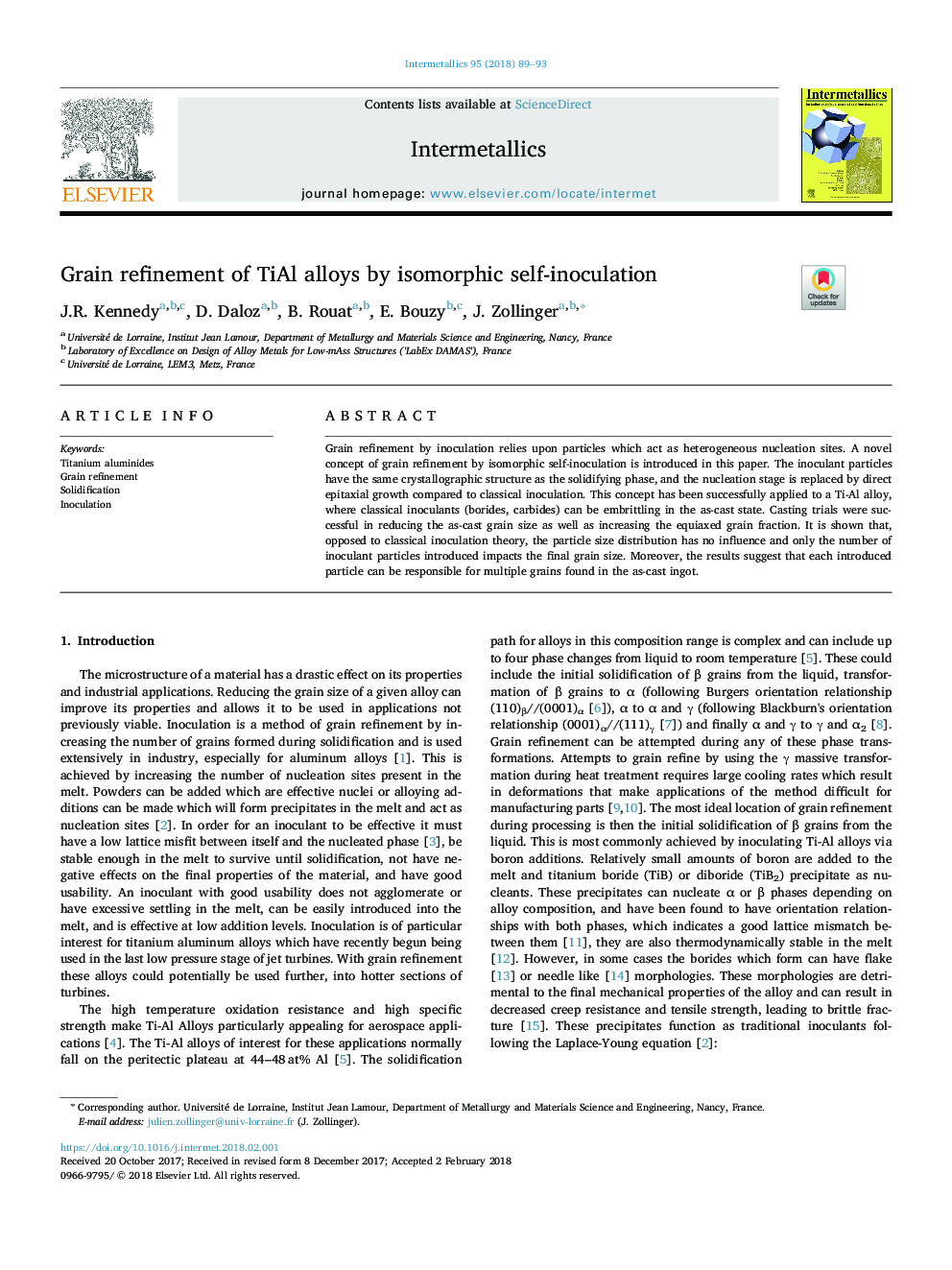| Article ID | Journal | Published Year | Pages | File Type |
|---|---|---|---|---|
| 7988344 | Intermetallics | 2018 | 5 Pages |
Abstract
Grain refinement by inoculation relies upon particles which act as heterogeneous nucleation sites. A novel concept of grain refinement by isomorphic self-inoculation is introduced in this paper. The inoculant particles have the same crystallographic structure as the solidifying phase, and the nucleation stage is replaced by direct epitaxial growth compared to classical inoculation. This concept has been successfully applied to a Ti-Al alloy, where classical inoculants (borides, carbides) can be embrittling in the as-cast state. Casting trials were successful in reducing the as-cast grain size as well as increasing the equiaxed grain fraction. It is shown that, opposed to classical inoculation theory, the particle size distribution has no influence and only the number of inoculant particles introduced impacts the final grain size. Moreover, the results suggest that each introduced particle can be responsible for multiple grains found in the as-cast ingot.
Related Topics
Physical Sciences and Engineering
Materials Science
Metals and Alloys
Authors
J.R. Kennedy, D. Daloz, B. Rouat, E. Bouzy, J. Zollinger,
